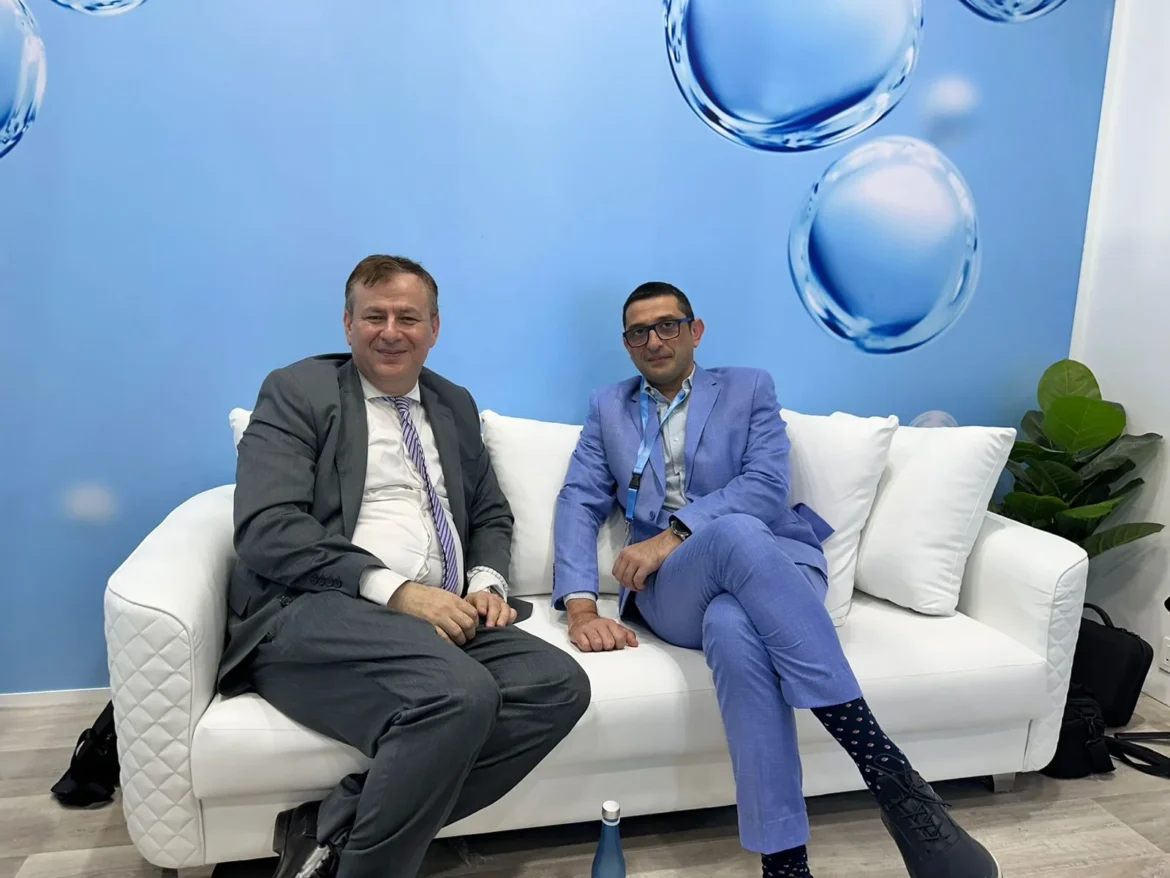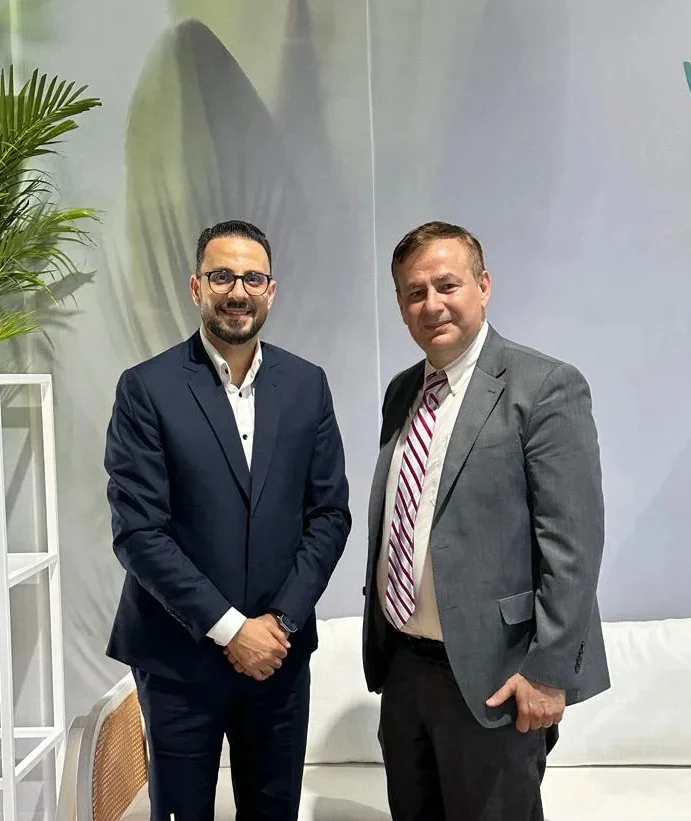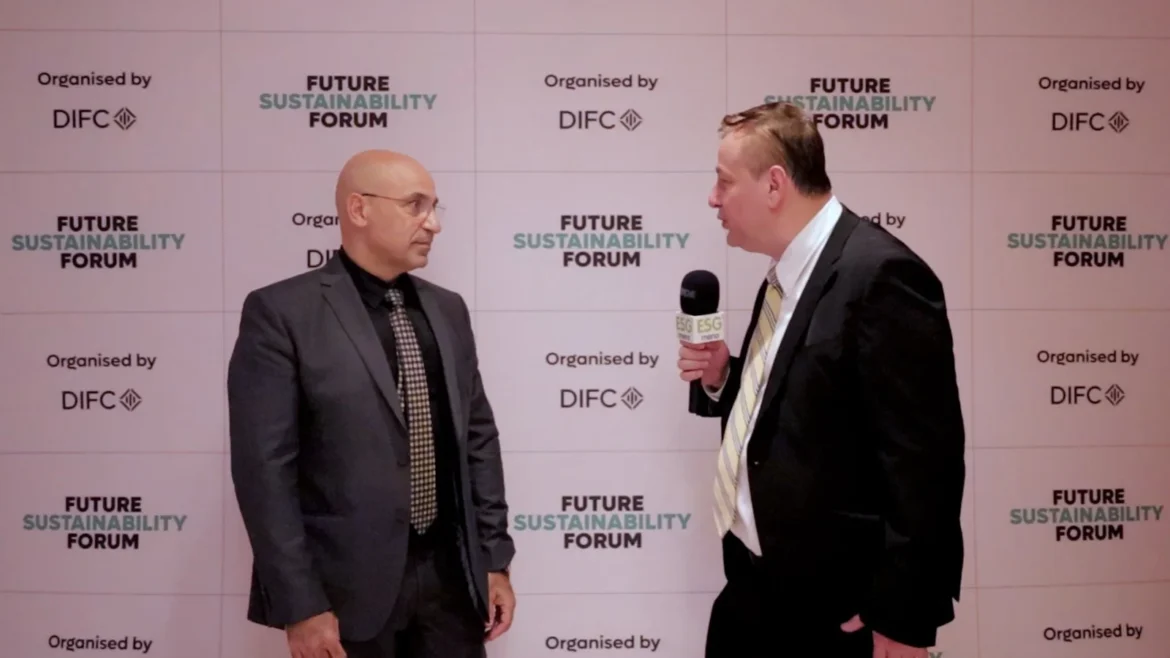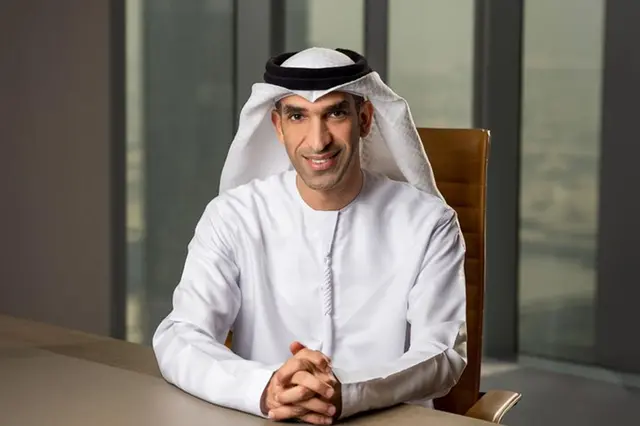Monthly Archives
October 2023
“A zeitgeist shift”: SEC Newgate research reveals insights into the changing nature of ESG
written by Madaline Dunn
The recently published third annual ESG Monitor from SEC Newgate has revealed what Financial Times’s Gillian Tett called an “astonishing zeitgeist shift.”
The survey showed that people’s expectations of company actions have changed dramatically, and companies will now be negatively impacted by breaching ESG norms.
ESG Mena takes a look at the report’s results from a macro perspective and unpacks key trends emerging in the UAE.
The global context
Globally, we’re seeing the rise of the conscious consumer. More than ever, people care about the environmental and social impact of companies and are keen to find out whether they truly walk the talk. This was evident in the results of the recent ESG Monitor survey.
Having collected responses from 12,080 people across the UAE, Singapore, HK SAR, Australia, Spain, Colombia, Italy, the USA, Germany, Poland, France, and the UK, the report revealed that people are increasingly engaged with ESG issues despite not necessarily being familiar with the term.
In fact, in comparison to last year’s results, 53 per cent were aware of ESG issues (up from 46 per cent) and 67 per cent rated their interest at seven or more out of ten (up 11 per cent).
Awareness and interest are also turning into action, informing how people vote, the type of food they eat, the types of products they buy, and how they travel. Indeed, we are also seeing holidaymakers increasingly prioritise environmental considerations, informing both their method of transport and holiday destination.
In line with this, a whopping 77 per cent of respondents want corporates to take action on ESG issues, and there was significant support (71 per cent) for companies speaking out on issues important to their employees and customers – revealing that ESG is a business imperative now, more than ever.
The majority (69 per cent) of respondents also shared that they believe good ESG performance doesn’t have to come at the expense of profit, and, in fact, 45 per cent said they are willing to pay more for products or services from companies with stronger ESG performance. Here, food was the area where people were willing to pay the most.
In terms of respondents’ perception of companies doing a “bad job” on ESG, the areas of focus highlighted included things such as harmful impacts on the environment and too much plastic to more socially-focused aspects such as worker exploitation and bad conditions. Excessive profits, price gouging and promoting overconsumption were also perceived badly by respondents, as was a slow transition to sustainability.
On the other hand, taking action on climate change was found to be by far the biggest driver of “good” ESG performance in large companies. Respondents also wanted companies to prioritise areas such as action on transparency, supply chain ethics and ethical AI. Indeed, globally, research shows AI is currently a top concern for many consumers, who are worried about misinformation, personal data privacy and irresponsible usage.
Communication expectations
When it comes to communication, the research found that while there was a slight decline from last year (72 per cent), 68 per cent of respondents believe that companies should outline the results of their ESG efforts more clearly for consumers and investors. That said, just 35% said that they were looking for information on companies’ ESG activities and performance.
It was also found that the community isn’t solely putting the onus on companies, with 70 per cent agreeing that the Government should be playing a “bigger role” to ensure there are better regulations for environmental marketing claims and that these are enforced. Similarly, 69 per cent said there should be a consistent approach for companies to report their ESG performance. Of course, globally, this consistency is lacking, despite the rise of ESG Disclosure Standards.
Community trust in companies was also found to be low, with 60 per cent sharing that they often worry about companies providing misleading information about the impacts of their operations. And, of course, this concern is well-founded, with greenwashing a serious issue permeating all sectors. Further, research from Scientific Beta earlier this year found that a high ESG rating has “little to no relation” to carbon intensity.
In the global survey, clear differences also emerged between generations, with younger generations more engaged on the issue of ESG and also most likely to factor in ESG in decision-making, employment and investment.
A regional lens
Through a more regional lens, the report found that in the UAE, around 74 per cent had heard of ESG. This is a 2 per cent increase from last year and puts the UAE at the top, alongside Hong Kong SAR and Singapore. The figure stands in contrast to ESG’s relatively nascent status across Middle East businesses.
There was also a significant increase in ‘net-zero’ awareness this year, reaching 61 per cent, up from 56%.
Interestingly, when it came to their day-to-day decision-making, citizens in the UAE were found to place a higher importance on ESG issues than in other countries. In particular, the types of foods they eat (77% vs. 62% globally), the types of products they buy (76% vs. 62%), and how they choose to travel (74% vs. 55%) were influenced by this. This aligns with broader consumer research data, which has found UAE consumers are willing to pay more for the likes of sustainable broadband, travel, and food.
Likewise, on whether companies should take action on ESG, it was a resounding yes, with ninety-one per cent agreeing this is important.
At the same time, 59 per cent of respondents in the UAE have heard of the term ‘greenwashing’, and 58 per cent agree that it’s a problem.
Further, the report highlighted that there’s been a shift in terms of consumer expectations. While many traditionally saw corporates’ primary role as making a “positive financial contribution to the economy,” now, consumers don’t want this to come at the expense of environmental, social and ethical obligations.
And what does the community look for regarding good ESG performance? A holistic approach and the demonstration of action.
The Anti-ESG movement & ESG evolution
As part of SEC Newgate’s ‘Global ESG Monitor’ launch, it brought together a number of ESG experts for a roundtable. There, a discussion was had on the anti-ESG movement, which has gained momentum in recent years. Here, Andrew Adie, Head of Green & Good and Corporate Reputation, SEC Newgate UK, said that the “woke-capitalist movement” is “kicking the tires on ESG.”
However, he encouraged corporates to “see it for what it is,” calling it a “broadly right-wing, ideological free-market view” that doesn’t necessarily tie into the “big macro issues” that are going to change the world in the next 15-20 year’s time, which he said includes climate change and generational change.
Meanwhile, Gillian Tett, Chair of the editorial board and Editor-at-large US, Financial Times, said there are some “real problematic issues” around combining the three elements of ESG. She said she believes it can be “much better described” as Adam Smith’s original vision of capitalism, with competition to drive growth and innovation within a shared moral and legal framework and an awareness of a company’s footprint.
Tett said that companies are now much more aware of the social and political contexts in which they’re operating and said there’s an ongoing move from “tunnel vision” to “lateral vision.” She added that the move toward ESG is being informed by the fact that there are “huge amounts of money to be made by playing into this trend, not against it.”
Further, Tett noted that while in 2019, greenwashing was common among companies, now green-hushing is becoming more prominent.
However, the research shows that the community will no longer accept what Geraldine Ang, Senior Policy Analyst, Finance and Investment and Global Relations Division, Environment Directorate, OECD, called the “PR packaging of responsible action.” Ultimately, consumers want to see companies “genuinely try” and take authentic action.
COP28 President Dr. Sultan Al Jaber delivered a keynote address at the opening session of the 2023 Arctic Circle Assembly in Reykjavik, Iceland, highlighting the dangerous impact of climate change on fragile, Arctic ecosystems and calling on nations to support the COP28 Action Agenda to keep the Paris Agreement goals within reach.
“For the last 10 years, the Arctic Circle has been leading the conversation around the impact of the climate on fragile Arctic ecosystems,” Dr. Al Jaber told delegates. “This group has alerted the world to the fact that the Arctic is warming around four times faster than the rest of the planet.”
The Arctic Circle Assembly is the largest annual international gathering on the Arctic with over 2,000 attendees from more than 60 countries, including the Chairman of the Arctic Circle, Ólafur Ragnar Grímsson, the Prime Minister of Iceland, H.E. Katrín Jakobsdóttir, Denmark’s Minister for Foreign Affairs, Lars Lokke Rasmussen, policymakers from other nations, indigenous leaders, scientists, activists and representatives from business, civil society, and other stakeholders. The event will feature more than 700 speakers and 200 sessions, with a major focus on climate change and energy security.
“The world must cut 22 gigatons of greenhouse gas emissions in the next seven years to keep 1.5°C in reach,” Dr. Al Jaber declared. “This is a massive task that will require nothing short of global unity.”
The COP28 Action Agenda provides “a practical plan of action to transform the goals of Paris into a realistic roadmap that the whole world can follow,” Dr. Al Jaber said. “This roadmap is centered on our key pillars: fast-tracking the energy transition, fixing climate finance, focusing on people, lives, and livelihoods, and underpinning everything with full inclusivity. “
On fast-tracking the energy transition, Dr. Al Jaber said it must be fair, well-managed and responsible and leave no one behind.
COP28 has set a global goal of tripling renewable energy capacity by 2030.
“We are making progress,” Dr. Al Jaber said, “85% of the world’s economies have endorsed our goal of tripling renewable energy and doubling energy efficiency by 2030.”
Dr. Al Jaber said his Presidency was engaging with oil and gas companies to eliminate methane emissions by 2030 and align around Net Zero by 2050. He was also in discussions with heavy emitting sectors “to accelerate their transition timelines and decarbonize the energies they use today.”
The COP28 President also called for a “massive scale-up in climate finance,” including delivering on the $100 billion pledge to developing nations, recharging the Green Climate Fund, doubling adaptation finance and operationalizing loss and damage funds. He also stressed the importance of multilateral development bank reform to make climate finance more available, accessible, and affordable and for market mechanisms to incentivize more private-sector finance.
“At the heart of all our efforts on climate action is our collective goal of protecting people, lives, and livelihoods,” said Dr. Al Jaber “That’s why we have put health, food and nature at the forefront of the COP28 agenda.”
“We are also urging all countries to sign the COP28 Declaration on Sustainable Agriculture, Resilient Food Systems, and Climate Action and the first ever Climate and Health Declaration, focused on how we can feed a growing population without overheating our planet,” added Dr. Al Jaber.
As the final pillar of the COP28 Action Agenda, Dr. Al Jaber insisted the entire agenda be underpinned by full inclusivity, emphasizing that “COP28 will welcome all voices, representing all points of view.”
“From every region of the world. From the Arctic to Asia, from Africa to the Americas, this COP must deliver for everyone, everywhere,” Dr. Al Jaber told delegates, “I want COP28 to be a platform that rises above divisions and reminds the world that real progress is only possible through partnership.”
During the speech, Dr. Sultan praised Iceland for “pioneering geothermal energy to build the world’s largest direct air capture facility in the world.”
Abu Dhabi and Burjeel Holdings sign MoU to leverage latest AI technologies within emergency departments
written by Madaline Dunn
In line with Abu Dhabi’s digital transformation efforts, the Department of Health – Abu Dhabi (DoH), the regulator of the healthcare sector in the Emirate, signed a Memorandum of Understanding (MoU) with Burjeel Holdings, one of the leading private healthcare service providers in the MENA region during GITEX Global Week 2023. The agreement seeks to leverage the latest breakthrough technologies and Artificial Intelligence (AI) solutions to enhance patient and healthcare outcomes specific to Emergency Departments (EDs).
The MoU was signed by Dr. Saleh Saif Al Ali, Executive Director of the Centre of Emergency Preparedness and Response (CEPAR) at the Department of Health – Abu Dhabi (DoH) and Dr. Zuhair AlSharafi, Corporate Director Emergency Services Line at Burjeel Holdings, In the presence of Dr. Aysha Ali Al Mahri, Deputy CEO at Burjeel Medical City.
Through this MoU, DoH and Burjeel Holdings will harness the potential of AI to revolutionise emergency department patient care through the deployment of advanced solutions that optimise resource allocation and improve operational efficiency. The partnership will magnify efforts with the aim of enhancing the patient experience and safety while maintaining compliance with international legal and ethical standards. This comes in line with the Department’s efforts to further invest in the healthcare sector’s digital infrastructure and ensure the population’s health and well-being through the delivery of comprehensive and timely healthcare services.
Dr. Saleh Saif Al Ali, Executive Director of the Centre of Emergency Preparedness and Response (CEPAR) at the Department of Health – Abu Dhabi (DoH), said: “Our partnership with Burjeel Holdings, reflects the Department of Health – Abu Dhabi’s (DoH) commitment to setting the stage for a future driven by healthcare technology, innovation, and artificial intelligence. As the healthcare sector’s regulator, this enables us to ensure its agility and the preparedness of the national healthcare system to respond to rising emergencies. This comes in line with our continuous efforts and dedication to cementing Abu Dhabi’s position as a leading destination for healthcare.”
Leveraging both parties’ extensive expertise, DoH and Burjeel Holdings will exchange knowledge and expertise to facilitate the secure sharing of relevant healthcare data, subject to all applicable privacy and regulatory requirements, to enable the development and implementation of AI-based solutions within EDs. Furthermore, the partnership will witness the establishment of a framework to detect technological problems in advance and prevent errors by outlining decisions based on data and evidence.
Reinforcing the Emirate’s position as a destination for innovation in healthcare, the joint agreement with Burjeel Holdings represents a significant step forward where both parties will establish a data-driven culture within EDs by integrating AI solutions for data analytics, allowing healthcare providers to make more informed decisions, enhance clinical pathways, and continuously improve patient care protocols.
Dr.Zuhair AlSharafi ,Corporate Director Emergency Services Line at Burjeel Holdings said: “At Burjeel Holdings, we are proud to have signed a cooperation agreement with the Department of Health, the regulatory authority for the healthcare sector in Abu Dhabi, where Burjeel Holdings company is always working with the concerned health authorities in the country and side by side to develop and upgrade healthcare services provided to the community within international standards, and under this agreement we will be able to use artificial intelligence solutions and harness them in serving emergency patients and their safety and enhance their experience and make it more positive, such as reducing waiting times in emergency departments, helping specialists detect critical cases early, and determining the medical and pharmaceutical procedures due strictly follow and develop protocols for the care of emergency patients according to their condition, thus increasing the rate of patient satisfaction and making the services provided to them more efficient, and artificial intelligence systems greatly help emergency doctors to carry out their work professionally and smoothly”.
The Department of Health – Abu Dhabi (DoH) is inviting guests to visit its stand and view the latest healthcare technologies and innovations of Abu Dhabi’s healthcare sector. DoH is participating under the unified umbrella of the Abu Dhabi Government Enablement, located in Sheikh Saeed Hall, Hall 19/B20 from 16 October 2023 to 20 October 2023.
Forbes Middle East has revealed its inaugural list of sustainability leaders, spotlighting the Middle East’s biggest players making the most impactful commitments and forward steps toward sustainable business goals.
The list highlights 11 key corporate sectors. Forbes Middle East evaluated the companies in relation to their positive environmental impact, ESG commitments, levels of transparency and collaboration, sustainability initiatives in the past year, and their roadmap to net zero. For banking and financial services, the facilitation of sustainable finance was also considered.
The list features 100 companies, with 44 leaders from the UAE, 22 from Saudi Arabia, ten from Qatar, and 12 global companies with 11 regional offices in the UAE. Five entries are from Egypt, three are from Kuwait, and two each are from Bahrain and Oman.
We also highlight ten leaders in government in the Middle East who are using their influence to create positive change. From the UAE, this includes Sultan Al Jaber, COP28 President-Designate, UAE Special Envoy for Climate Change, and Minister of Industry and Advanced Technology; Razan Al Mubarak, Managing Director of the Environment Agency – Abu Dhabi (EAD); Mariam Almheiri, Minister of Climate Change and Environment; and Thani bin Ahmed Al Zeyoudi, Minister of State for Foreign Trade.
From Saudi Arabia, the featured leaders are Adel Al-Jubeir, Minister of State for Foreign Affairs and Climate Envoy, and Abdulrahman AlFadley, Minister of Environment, Water and Agriculture. Other listees recognized are Bahrain’s Minister of Oil and Environment and Special Envoy for Climate Affairs Mohamed Bin Mubarak Bin Daina; Egypt’s Minister of Environment Yasmine Fouad; Oman’s Chairman of the Environment Authority Abdullah Al Amri; and Qatar’s Minister of Environment and Climate Change Faleh Bin Nasser Al Thani.
“We have to understand that we cannot accept the current status,” Thani bin Ahmed Al Zeyoudi, the UAE’s Minister of State for Foreign Trade, told Forbes Middle East in an exclusive interview featured in the October magazine. “We have to move away from the blaming mindset. It’s a problem, and we have to work together. The biggest threat is not taking any action.”
Established in 1933, Saudi-based Aramco is the oldest-standing local company on the Sustainable 100 list, having launched its environmental plan in 2001. Among the global companies with regional presence, Swedish telecom firm Ericsson ranks as the oldest running business, established in 1876. In October 2022, Ericsson partnered with e& to use the latest Ericsson Radio System portfolio, which resulted in a 52% reduction in energy consumption. The three youngest companies on the list were founded in 2020: real estate developers SEE Holding and ROSHN Group and agri-food firm Silal.
The Abu Dhabi Government has continued its announcements of projects and initiatives as part of its participation at GITEX Global 2023.
The Abu Dhabi Government pavilion has witnessed a number of major launches and announcements at the event, including the Smart AI Vehicle Inspection by the Department of Municipalities and Transport (DMT); the ‘Unlocking the Potential of Data for the Greater Good’ initiative and the launch of Insights and Foresights Platform (IFP 2.0) by the Statistics Centre – Abu Dhabi (SCAD); and the Department of Energy (DoE) ‘s third phase of the heatmap project which aims to measure the intensity of water and electricity consumption in buildings using three-dimensional techniques.
The entities presented their cutting-edge contributions to the Emirate’s digital future, reaffirming the government’s status as a leader in advancing AI and data-driven progress.
SCAD’s ‘Unlocking the Potential of Data for the Greater Good’ project aims to develop state-of-the-art technological solutions to establish a unified virtual database. This database enhances the approach of data governance and integration in a secure environment, allowing decision-makers from government entities and the business community – including local, international and emerging companies – to access data repositories from various sectors and sources, with the aim of leveraging this data to make informed decisions. The project also enables ensuring confidentiality and privacy of data; harnessing the latest artificial intelligence techniques for analysis; and providing reliable proactive insights while improving data quality.
As part of the centre’s unwavering commitment to optimising data, SCAD also announced the launch of the second version of Insights and Foresights Platform (IFP 2.0). This release incorporates advanced features and enhancements to meet user requirements, such as customising platform settings to generate statistical comparisons; creating interactive dashboards; and issuing analytical reports based on geospatial data. Additionally, the enhanced AI-based platform relies on cutting-edge artificial intelligence techniques to offer timely nowcasts and forecasts through AI-powered models, equipping decision- and policy-makers with reliable, proactive analyses into Abu Dhabi’s economic and social landscapes.
His Excellency Abdullah Gharib Al Qemzi, Acting Director General of Statistics Centre – Abu Dhabi, said: “The ‘Unlocking the Potential of Data for the Greater Good’ project represents a significant leap towards achieving data-driven excellence. By harnessing the potential of data and utilising the latest artificial intelligence technologies, SCAD aims to facilitate data access, foster collaboration and integration within the business community in the emirate. This is aimed at improving data quality, management and analysis, providing reliable proactive insights and enhancing efforts to protect the security, confidentiality and privacy of data, using it responsibly as we move towards a new era of progress and development.”
Meanwhile, DMT’s Smart AI Vehicle Inspection project harnesses AI and advanced technologies to conduct thorough vehicle inspections. This initiative incorporates sensors, cameras, machine learning algorithms and computer vision techniques to analyse various aspects of a vehicle’s condition, enhancing safety and regulatory compliance.
In parallel, DoE introduced the third phase of its game-changing 3D energy and water use intensity heatmap, an advanced system with elevated capability to reduce human intervention in displaying and analysing data by up to 90% while greatly enhancing the level of awareness among consumers in understanding the rate of consumption.
The system also provides complete data for more than 350,000 buildings in a period of no more than a minute, and the system provides visual data for more than 72 million monthly readings on a single dynamic map, ensuring comprehensive insights that help make reliable and effective decisions.
His Excellency Eng. Ahmed Mohammed Al Rumaithi, Undersecretary of the Department of Energy, said: “This project reflects the Department’s continued commitment to pioneering digital government initiatives that aim to enhance efficiency in energy use. GITEX Global 2023 is an ideal platform to unveil this significant project that will enhance our ability to make informed decisions while issuing policies and creating programmes to efficiently manage water and electricity consumption in Abu Dhabi buildings.”
Other key showcases from the Abu Dhabi Government throughout the exhibition included the Department of Health (DoH) project, Unlocking Better Healthcare, which featured four initiatives: an AI Patient Assistant to help patients navigate the healthcare system; an AI Virtual Doctor enabling patients to access virtual healthcare; an AI-Powered Physician Platform for physicians to access and use data; and an AI Anomalies Detection system to collate and monitor data relating to issues such as medication prescription.
Similarly, the Family Development Foundation (FDF) introduced the Digital Social Observer system, automating social phenomenon and issue monitoring to predict and address emerging social challenges and develop tailored programmes to meet the community’s needs. The Digital Integration initiative, also on display, encourages and enables full participation in digital life for senior citizens.
Abu Dhabi Social Support Authority (ADSSA) launched its Enhancing Customer Experience initiative, designed to streamline, align and ultimately digitalise processes involved in supporting dependent national families with the aim of improving the customer experience.
The Abu Dhabi Chamber showcased Chamber ChatGPT, an AI tool specially designed to enable members to engage with the Chamber’s platform naturally and intuitively leverage natural language processing (NLP) technology.
Thus far, the Abu Dhabi Government pavilion, led by the Department of Government Enablement (DGE), has showcased some 20 projects and signed nearly 30 MoUs. The government’s continued presence at GITEX Global, now in its twelfth year, is testament to its unwavering commitment to innovation and progress, building on past successes and driving the future of technological advancement.
GITEX 2023: Shell Lubricants showcases immersion cooling fluids aimed at reducing energy consumption of data centres
written by Madaline Dunn
Shell Lubricants is showcasing a range of single-phase immersion cooling fluids to keep computer components cool in an efficient way, at this year’s GITEX 2023. The single-phase immersion cooling fluids are designed to cut energy consumption and lower carbon dioxide emissions, especially in energy-intensive facilities such as data centres.
Shell’s gas-to-liquids products made from natural gas are synthetic fluids. The colourless and odourless fluids are inherently biodegradable to different extents, stable and provide excellent performance and material compatibility.
Combined with other low-carbon solutions offered by Shell, such as renewable power, smart energy management services and certified carbon credits, the deployment of single-phase immersion cooling supports data centre operators’ goals of optimising performance sustainably.
The demand for data centres in the Middle East has experienced a significant increase in recent years. With the region’s rapid digitalization, businesses are increasingly relying on data-intensive applications, cloud services, and advanced technologies, which dictates a need for reliable and secure data storage and processing facilities. Moreover, the Middle East’s booming e-commerce sector, government initiatives, and the prevalence of smart cities have further propelled the need for data centers to handle vast amounts of information and data,” said Haytham Yehia, General Manager, Shell Middle East, Central Asia. “We at Shell are invested in sectors that have immense potential for growth and the technology space is one such example.”
With the growing use of data-intensive technologies, such as the Internet, cloud and edge computing, artificial intelligence (AI) and big data analytics, demand for server space is increasing rapidly, placing greater demand on global data centres. Data centres account for about 1%[i] of global electricity consumption, with more than a third of this power used for cooling electrical components.
Shell is an early adopter of the immersion cooling technology and recently upgraded its high-performance computing (HPC) cluster at Skybox, a U.S.-based data centre, which already operates on 100% renewable power purchased from Shell Energy, to demonstrate a fully integrated, optimised, and scalable solution for its customers.













